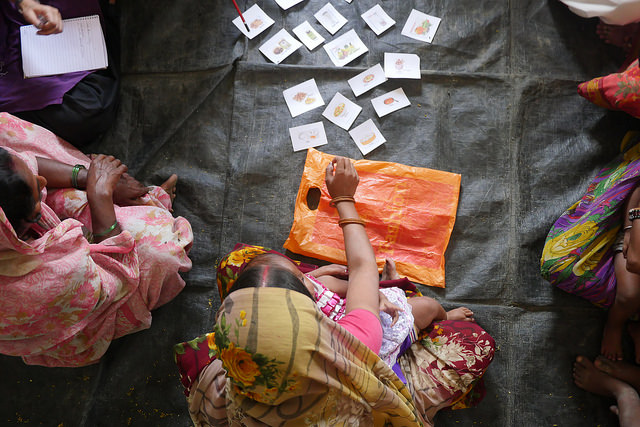Leveraging rituals to strengthen quality of care in India
The communities of Bihar, Eastern India, suffer from high levels of infant mortality and poor maternal-child health outcomes. The quality of care provided by front line health workers (FLWs) contributes to the health-promoting behaviors that ameliorate these risks. Specific rituals surrounding health-service delivery by FLWs are not well understood, making it difficult to improve quality of care.
M4ID has partnered with the University of Austin Texas, and Bihar based partners, to research and better understand the psychological and cultural rituals that contribute to a behaviour. This project takes a unique approach by combining scientific research methods with human-centered design strategies, leading to research that will inform the design of more effective service delivery and behavioral outcomes.
We are centering on rituals in this project in order to:
- Understand the role of individual motivation in how FLWs perceive high quality care
- Identify the cultural FLW rituals that can be harnessed to encourage high quality health service delivery, as well as those that pose a barrier to health-promoting behavior among FLWs
- Determine the environment that can reinforce ritualistic behavior in order to achieve long-lasting, sustainable behavior change and high quality health service behaviors
The project is expected to be launched in February and will run over two years.
Back to news